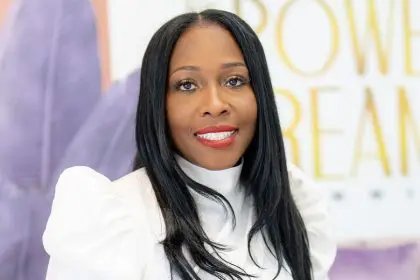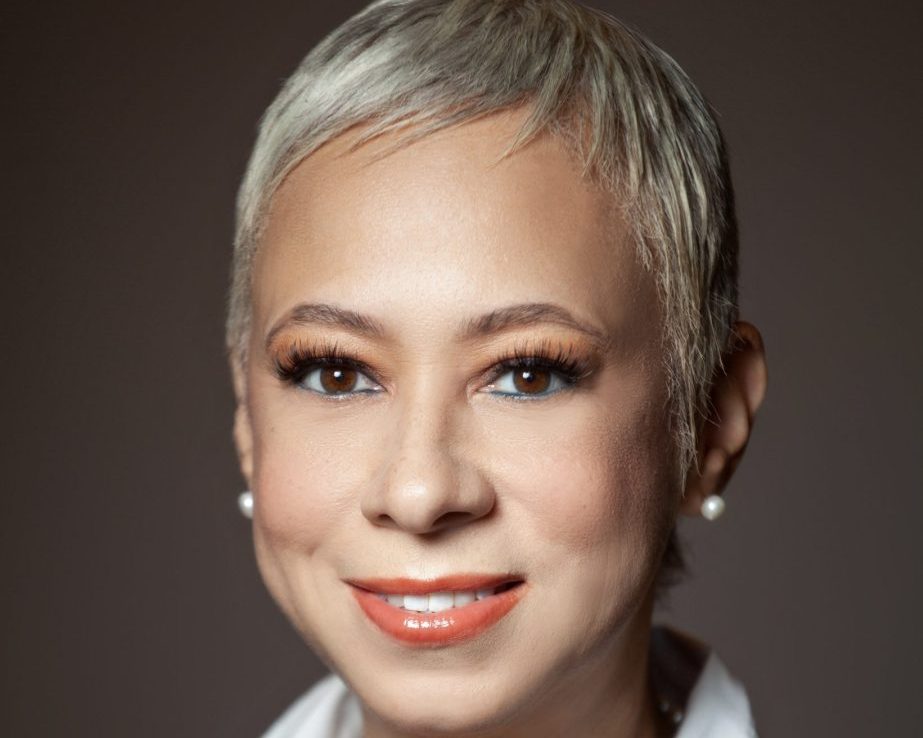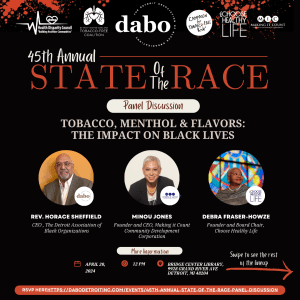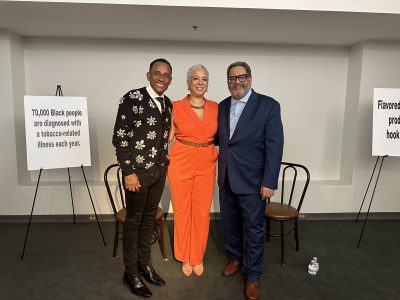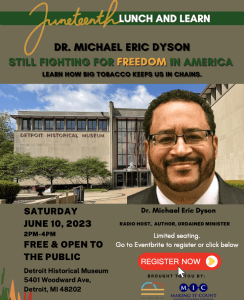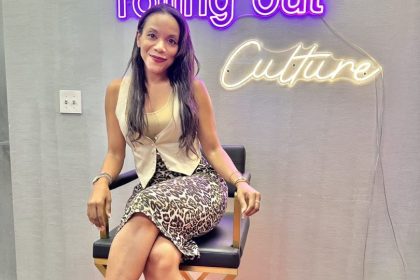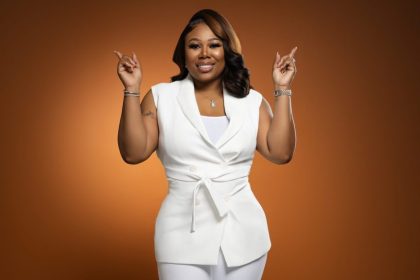Rev. Horace L. Sheffield III was born in Detroit during the Civil Rights and Labor Movement. The legacy of his father, Horace L. Sheffield Jr., who was the president of the Negro American Labor Council (NALC), helped shape and expose him to a great model of servant leadership and prophetic societal challenge. With this foundation, social activism has driven many of his efforts to help move change in the Black community.
Rev. Sheffield is the CEO of The Detroit Association of Black Organizations (DABO), where he leads and builds the Detroit community by developing the skills, abilities, and resources that organizations and communities need to be sustainable in this fast-changing world. The organization’s primary purpose is to impact and enrich lives across Detroit. Under Rev. Sheffield, DABO has had many successful initiatives, including COVID-19 testing and vaccinations, blood pressure management, hosting leadership training, HIV prevention, community development, and much more.
Rev. Sheffield is currently the president of the Michigan chapter of the National Action Network (NAN), national chairperson of the Restore Black Wall Street 2021 campaign, chairperson of the Detroit Ecumenical Ministers Alliance, lifetime member of the NAACP, and national board member of the Black Leadership Commission on AIDS and the National CARES Mentoring Movement.
In the midst of his busy schedule, Rev. Sheffield stopped to chat with rolling out publisher and CEO Munson Steed.
[Editor’s note: This is an extended transcription. Some errors may occur.]
Munson Steed: Hey, everybody! This is Munson Steed, and welcome to A Seat at the Table, where we bring you the most powerful individuals making a difference in our community so that we can claim our space inside our community, demand respect where it needs to be heard and meet those change agents who are dedicated to making a difference in our community. I want you to meet the one, the only, out of the “D.” What up, dawg, Reverend Sheffield, how are you today?
Rev. Horace Sheffield: I’m blessed, man. I’m with Munson. Can’t get any better than that.
MS: Well, thanks for that. But you are such a huge change agent in the community and a dedicated [servant]. There is a conference that you’re holding, not that you not having conferences all the time in Detroit and around the world, but literally can you share the title of it and give a vision on why we, as a community, need to be organized and be a part of an ongoing movement?
RHS: Well, you know there’s 3 R’s to this, but I think the most important one, Munson, if I could just extrapolate from it, is renewed response. I mean, we’re the recipients of folks who responded to the worst things imaginable done to any people on earth, and they sustain that response against it for centuries until you know they were freed, and then, even after that, had to do more.
So you know the renewed response, part of our 45th celebration, is what’s important because we’re facing things, as you know, in the courts, we’re facing things from, you know, Make America Great [Again], but we’re also facing things related to our health. Which is this visitation of the most carcinogenic cigarette in the free trade and market space in our Black communities.
Sheffield and the battle against menthol cigarettes
MS: What should we know about the lies that have been told about tobacco, and in particular menthol, as it relates to menthol and banning menthol and flavored vaping in our community?
RHS: Well, I think the first thing we can just put in aside menthol cigarettes is what it took for the tobacco industry to admit that cigarettes were deadly. I mean, they spent billions of dollars trying to conceal that truth [and] finally had to admit that it is carcinogenic, that people [who] smoke their cigarettes will die and are dying. But the worst part about that is that there’s certain things that make those cigarettes worse, one of which is menthol. And when flavored cigarettes were banned, the only one that wasn’t banned was menthol, and, as we know, the primary consumers of menthol cigarettes are people of color.
I always say, Munson, you’ve been around long enough that people who make money off of things that hurt, and how must make a calculation. They can do it, because not much will be done. We’ll be mad for a day, we’ll protest for an hour but at the end of the day, we’ll go away, and nothing substantial will have to happen in response to our protestation. So that’s what it is, it’s the worst cigarette imaginable. I mean, death is already inevitable from smoking those cigarettes, but it’s multiplied and magnified and quantified by menthol.
MS: In Detroit, you are creating an entire weekend — can you state the name of it? So those individuals can see it and just share why you continue to be on the front line.
RHS: Well, it’s our 45th anniversary for the
Detroit Association of the Black Organizations. What that is, is the Federation of Black Organizations. My dad felt that the difference between the pile of bricks and the cathedral was organized. When you look at the Jewish community … they’re all organized. They have federations of organizations, and they all pulled together, so that’s what he envisioned, that’s what we’ve done in Detroit, and we’re celebrating the 45th anniversary. We call it the State of the Race, and every year we address something that imperils and impacts the quality of life for people of color, for black folks. So, Friday night we have our award gala.
By the way, Minou [Jones], we announced today is receiving an award for her work in
banning menthol cigarettes. Award-winning violinist, and Ezinma will be performing. [Detroit television station] WDIV, who has been so wonderful in helping us get the word out about everything we do, we’re honoring them, but Karen Drew will be the MC for that and that’s free. And then on the 20th, of course, we have our forum to ban menthol cigarettes where Making It Count, and you guys have been very supportive, so that’s at 12 noon, by the way. And then on Sunday the music of, 7 pm, it’s our concert, fundraising concert we have Atlantic Starr, S.O.S Band, and Evelyn “Champagne” King.
MS: You know, beyond the State of the Race. You’re continuing to provide communication through our community, and you’re not the old-school preacher that doesn’t reach out. You’re surrounded by young people. Why are you such a bridge-maker inside our community, and why should we have all of that, use that as a roadmap to organizing?
Sheffield reaches out to younger generations
RHS: Well, I think primarily I am what I am, because my dad took me everywhere. I sat in on planning meetings for the March on Washington, I sold buttons at 9 years of age at the March on Washington, and seeing what can happen when people get together, pull their resources, create a common agenda, you know, empowered me to know that, you know things are possible if people just stand up and you know, persist and [keep] pushing back or doing something about it.
So, you’re right. I mean, I’m in a new place in my advocacy, Munson. I have decided that I need this younger generation. I mean, I got 500,000 followers on Instagram, now, you know what I mean. I had 3,000 when I was doing it. They know how to reach people, and I say to them all the time what we’ve got to figure out now, my daughters, you know, 30-some years of age, I think about to be the next mayor, we gotta figure how to get that generation engaged, because some of us like you and I, we’ve done our part, and we still have more to do.
But to make certain we can rest well, we need to have more young people who have our expertise who combine knowledge with action and power. And because we’re gonna be headed in the era in this country, man. It’s been unlike anything we’ve seen if you hear the rhetoric by the people on the right. You know, people who would never vote who said they’d never be in politics ought to wake up and realize the less we fight, we’re going to die.
MS: Thank you for that. When you think about the very vision that your dad and obviously you have, what would your message be to those people who really don’t understand that the country and Black people in particular are under siege, like what are they missing?
RHS: But what they’re missing is a guy named Sidney Willheim, who has a book called “Who Needs the Negro?” The beginning paragraph of this preface says, “All the cotton’s been picked, all the bricks been laid, and all the wheat hewn, and who needs a negro?” Now he wasn’t being disparaging against black folks, but what he said is, but black people don’t realize, they only brought us here for one reason, for free labor. And so the whole attitude in an era where there’s white male anxiety, white men who believe that this country, which was never theirs, being taken, that they’ve been excluded from the labor market and being willing to sacrifice.
This is what I tell black people, I’ll say, if white men are willing to sacrifice white women and their wombs to have power and control, where are we on that list? And so I just think, you know, we gotta wake up, man. And here’s the thing, we’re on the eve of having the majority in this country that people of color being in the majority, that’s why there’s such anxiety, and that’s why we’ve got to organize and make certain that the good people of goodwill are the ones who actually rise to the top and run this country.
MS: Lastly, if you were speaking at Morehouse or Howard, obviously the Blue and the Green Michigan State and University of Michigan. If you gave a speech for young brothers and sisters coming into this world as young professionals, what would the title of your speech for those individuals at a Morehouse that are ready and getting ready to make some decisions about their future? What would you challenge them to do?
RHS: Well, the title of my message would be, “Don’t Be Afraid Of The Friction.” Our foremothers and forefathers experienced friction when they were snatched from the western shores of Africa, when they were on boats being shipped here, when they were picking cotton, and they had, you know, people who were masters over them. I mean, that was friction and my father taught me very early, Munson, at the age of 9, that the only time you experience friction is, if you’re moving.
We have a generation now that wants to leave themselves of friction. That’s what makes character, that’s what builds momentum, that’s what empowers you when you overcome things. Don’t be afraid of friction, because the only time you experience friction is if you’re moving.
MS: Well, I want to thank you for your time, Reverend. I look forward to catching up with you. The State of the Race, everybody! Please follow Reverend Horace Sheffield, but if nothing else, let’s show up and show out. You don’t have to be in the streets, but you do have to be in the movement. This is Munson Steed, with Reverend Horace Sheffield and you are on A Seat at the Table. Thank you, Reverend.
RHS: Thank you, my brother. Appreciate you.








